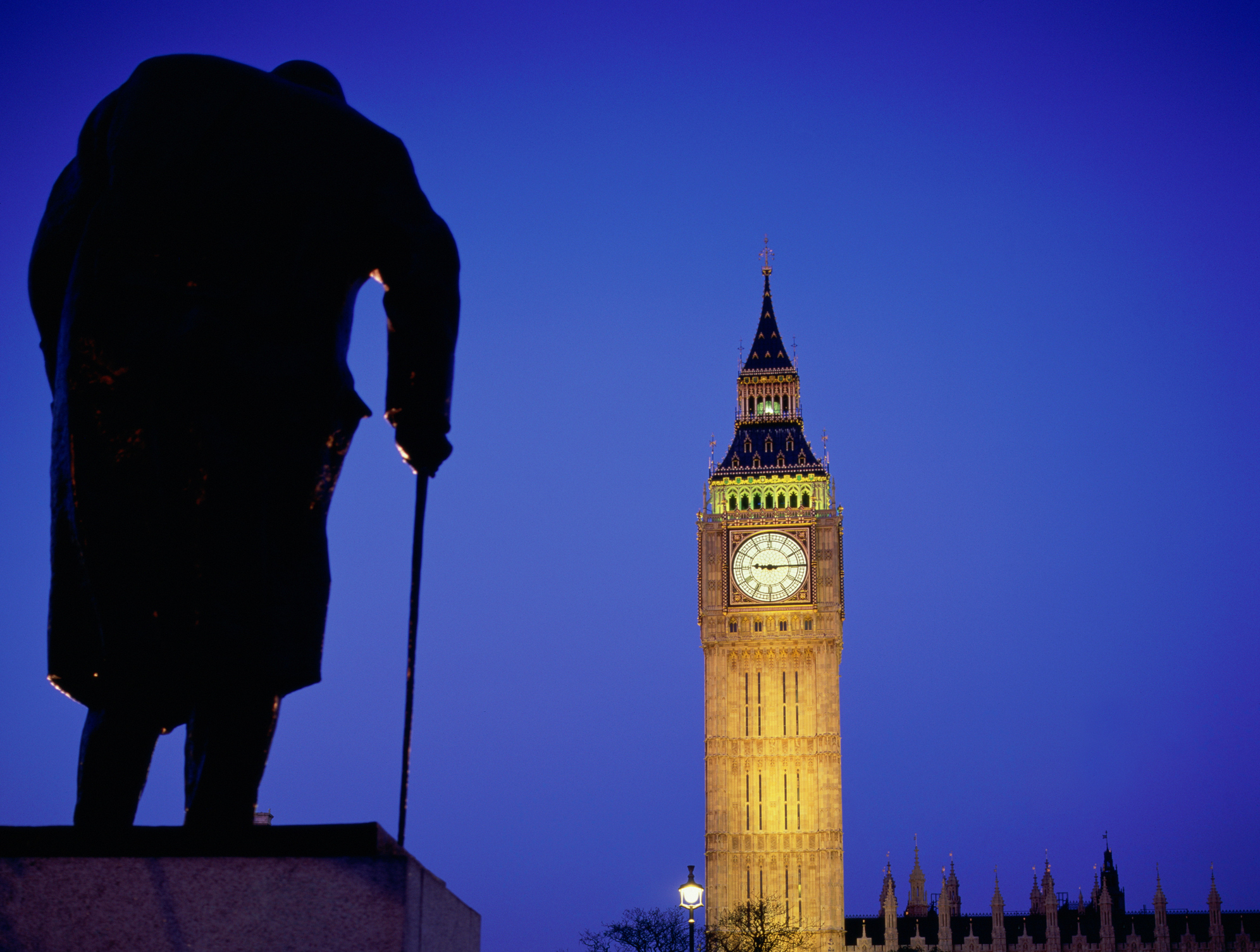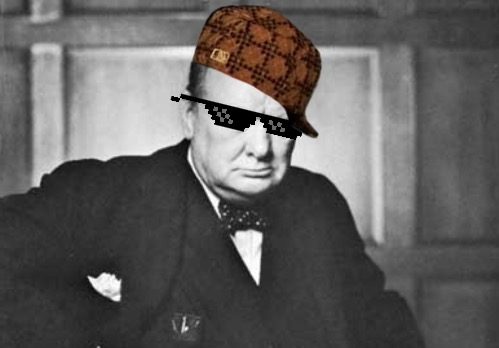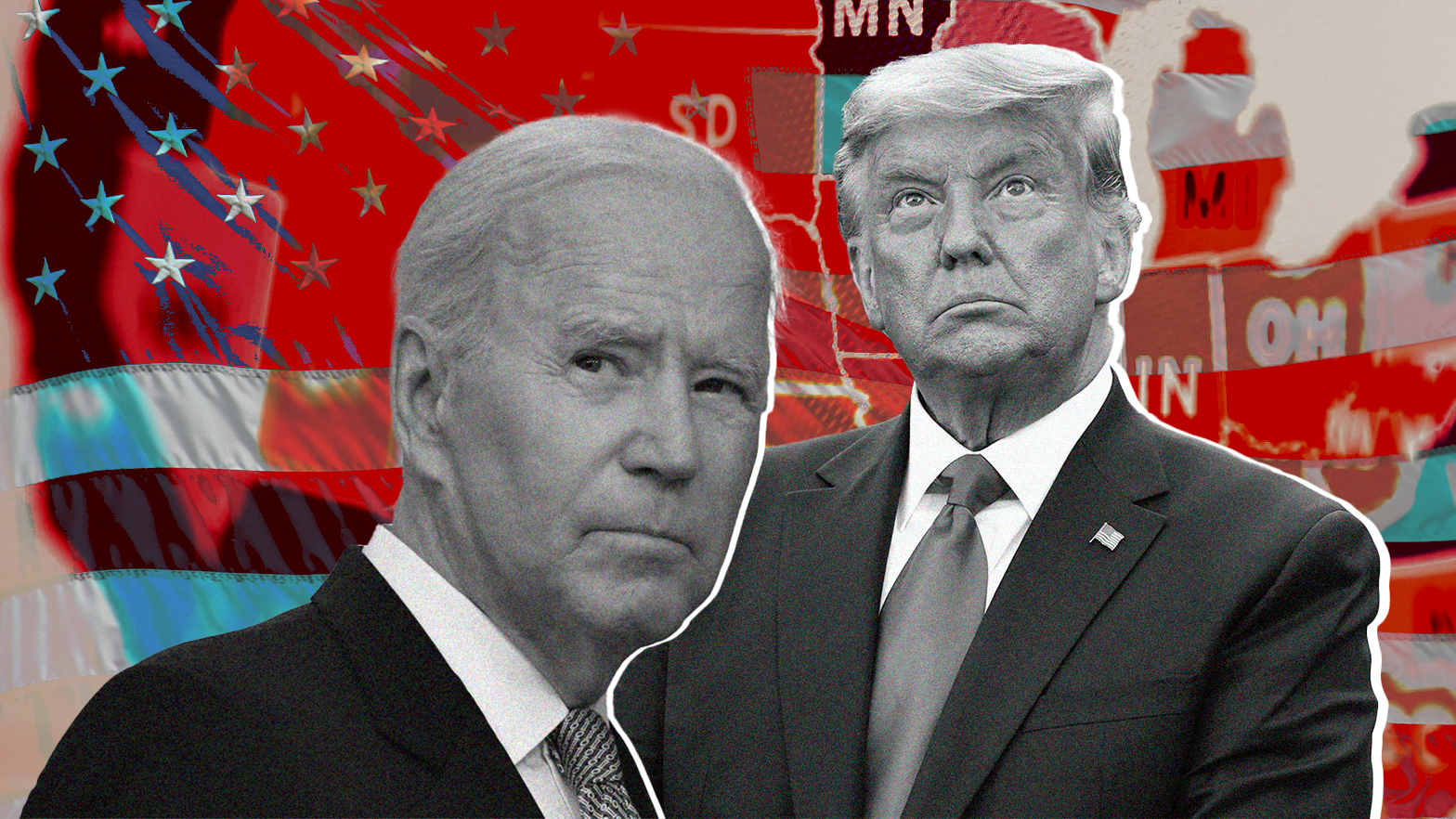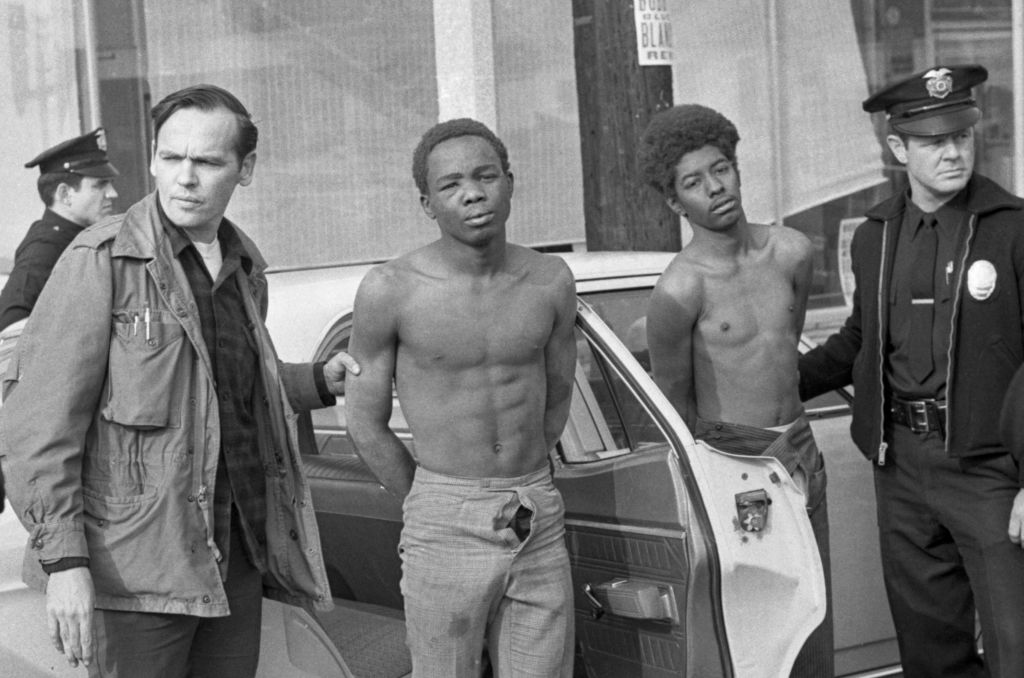There is nothing manly in throwing up your hands.
Churchill and the Academic War on Greatness

Ideological "scholars" continue to attack one of the West's preeminent statesmen.
It is commonplace for politicians and scholars alike to refer to “history” (or sometimes a more solemnly invoked “History” with a capital H) as the final arbiter of political actors and of history and statecraft more generally. Let History Judge, as the dissident Soviet Marxist historian Roy Medvedev called his massive indictment of Stalinist terror published in the West in 1971. But what does this appeal to the judgment of history finally mean? In some larger philosophical or ontological sense, it is a non sequitur since history in and of itself judges nothing. Human beings make history, but history as an impersonal process (or as one event after another) itself is bereft of any capacity for moral or civic judgment. When people evoke the judgment of history, they mean the judgment of future generations, or even the reigning consensus among (often small-souled) academic experts and specialists. They should hardly be confused with Thucydides, Plutarch, Macaulay, or Henry Adams, who were capable of exercising judgment in a manner both sublime and judicious.
Is the judgment of future generations always superior to those who had a direct experience of men and events, who immediately saw what was at stake in the great and enduring drama that is the sempiternal rivalry of men, regimes, nations, and parties? With good reason, Aristotle insisted that the spoudaios, “mature” or “serious” men (and we would add women) informed by the full range of the moral and intellectual virtues, should set the tone for moral and civic judgment and for decent political life more fundamentally. Without prudence, discernment, courage, and moderation, the fashionable preferences of academics and academic historians are hardly worthy of having pride of place when it comes to serious and sustained historical and political judgment.
How many “mature” men, in the fulsome Aristotelian sense, can be found among the “experts” who wish to monopolize the contemporary judgment of men and events? When moderation and common sense give way to ideological obsessions of various types, when self-loathing and cultural repudiation inform soi-disant scholarship, the academic clerisy forfeits the right to be taken as the measure of things by those truly formed by the wisdom and moderation integral to authentic liberal and civic inquiry.
Historical judgment is too vital to free and decent political life to be monopolized by a self-obsessed intellectual clerisy that is hardly informed by political moderation and responsibility. The notion of history judging is equivocal enough. But what person of good judgment is imprudent enough to say: “Let the (academic) historians judge; let them become the unchallenged arbiters of past, present, and future.” That is a sure guarantee for the victory of ideological categories and clichés over disinterested yet public-spirited scholarship. There are notable exceptions, to be sure, fine writers of historical narrative and biographies. But they do not set the tone in an academy that has long subordinated truth (and public responsibility) to ideological activism in an increasingly pernicious form.
These thoughts crossed my mind as I spent time with the recently published The Cambridge Companion to Winston Churchill, edited by the historian Allen Packwood of Churchill College, Cambridge. Cambridge Companions tend to be useful if uneven volumes, depending largely on the intellectual qualities of a volume’s editor and the scholars who are invited to address the author, historical figure, or theme under consideration. Some recent volumes have been inordinately influenced by postmodern deconstruction, feminist theory, gender theory, and the new racialism that increasingly informs—and deforms—academic scholarship. Packwood’s Churchill Companion, to be sure, is not the worst offender in this regard.
A few of the essays are genuinely insightful, particularly Peter Clarke’s well-informed article on “Churchill as Writer and Orator,” David Reynold’s judicious treatment of “Churchill as International Statesman,” and Richard Toye’s thoroughly balanced treatment of Churchill’s attitude toward a “United States of Europe,” an attitude complex enough to appeal to both Brexiteers and European federalists today. But the interest of the volume lies elsewhere. In decisive respects it is woke-adjacent. The contributors to the volume take for granted that Churchill was a racist even when his invocation of race amounts, in many contexts, to nothing more than a vague reference to the “English race,” a term shorn of racist or racialist intent.
The editor, Allen Packwood, is particularly egregious in this regard. His faux evenhandedness consists of refusing to identify Churchill’s position with “White Supremacy” while routinely referring to his “racism” as if no argument needs to be made in that regard. Those who esteem Churchill as a great man who helped save democracy and Western civilization are looked down upon as hagiographers, while those who accuse Churchill of various crimes and of attitudes that are cancellable in our “progressive age” are celebrated for bringing the liberating perspectives of “gender and post-colonial studies” to the “discussion of Churchill’s life and legacy.” Challenging widespread public admiration for Churchill (more in the United States than in his native Britain) is an unqualified good, while “caring for British national survival in 1940” is dismissed as parochial, something that preoccupies white, European, and largely male scholars. Two of the contributors would love to blame Churchill for genocidal intent concerning the Bengal famine of 1943-1944, but, in the end, they must rest content with mean-spirited and unjust accusations of “racism,” not mass murder.
To his credit, one scholar admits that Churchill thought an imperial power must act decently, even magnanimously, toward the people it governed. Churchill’s condemnations of British excesses in Sudan at the end of the so-called River War in 1898, his condemnation of imperial abuses in India, and his admiration for Hindus, Muslims, and Africans who fought courageously for the British cause in the two world wars hardly suggests that Churchill confused the political and cultural superiority of Western civilization with a crude racial hierarchy in the manner of Arthur de Gobineau and other theoreticians of modern racism. Churchill was too imbued with the spirit of common humanity, of a decency that owed much to the inheritance of “Christian civilization,” to be a racist in theory or practice. But the woke-adjacent identify any defense of Western civilization with “racism” through a sleight of hand that is risible if it did not thoroughly corrupt and corrode academic “scholarship” today.
Churchill made mistakes, and those mistakes should be open to fair-minded criticism. But to say he hated all Irish or Indian people is not supported by the historical record. His admirable lucidity about the monstrous evil of totalitarianism, and his courage in resisting it, counts little for a generation of scholars that hardly thinks the West was, and is, worth saving. But what is most striking in this volume is the way a concern for truth has been thoroughly displaced by ideological considerations inseparable from what the late Roger Scruton called “the culture of repudiation.” In the guise of even-handed historical scholarship, ideology reigns supreme. There is something suffocating about all this, a hijacking of history that bodes ill for Western intellectual and civic life.
In the new dispensation, race and gender replace a commitment to truth and balanced judgment and Western “values” that are said to be naïve, antiquated, and unjust. Moreover, the book remarkably includes no discussion of statesmanship or of the motives that oriented Churchill’s soul, other than “racism” and pure ambition. None of Churchill’s major writings and speeches, for which he was awarded the Nobel Prize for Literature in 1953, are subject to sympathetic, if critical, literary explication and analysis. None of the political theorists or philosophers who have ably commented on Churchill’s writing, statecraft, and self-understanding have a place in this book. Despite numerous mentions of The River War, most of them disparaging, no mention is made of James Muller’s recent magisterial edition of the original 1899 edition of that work. Muller’s book-length introduction to his edition of that work can be compared most favorably with the name-calling that substitutes for exegesis in too many of this volume’s essays.
“Letting history judge” is more problematic than the facile invocation of that imperative suggests. But letting an increasingly ideologized group of academic historians “judge” is much more pernicious and problematic. There is nothing scientific or authoritative about woke-adjacent scholarship, even in its more restrained forms as with the The Cambridge Companion to Winston Churchill. If the denizens of activist ideological “scholarship” have their way, admiration for human greatness, warts and all, will be driven from the face of the earth. We must not let them have their way. In doing so, we will preserve and renew historical and political judgment worthy of the name.
The American Mind presents a range of perspectives. Views are writers’ own and do not necessarily represent those of The Claremont Institute.
The American Mind is a publication of the Claremont Institute, a non-profit 501(c)(3) organization, dedicated to restoring the principles of the American Founding to their rightful, preeminent authority in our national life. Interested in supporting our work? Gifts to the Claremont Institute are tax-deductible.
Pocketbook concerns override racial resentment in the current political climate.
From the Black Panthers to Hamas, the radical Left loves to lie about terrorist groups.
If they don't act, white Americans will soon be subsidizing their own destruction.
The collapse of academic standards is a function of racial preferences.
The dark history of the radical Left's enforcement arm.






